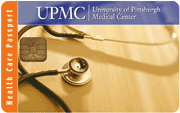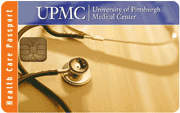New Smart Card Alliance paper addresses benefits of smart cards for healthcare applications
A new white paper from the Smart Card Alliance details how smart card technology is slowly making its way into the healthcare industry and the benefits of transitioning to a system that provides better security while meeting patient privacy regulations.
In an era of managed care, specialized medicine, mile-high paperwork, high costs, identity fraud and government demand for secure, portable and confidential patient information, the competitiveness of healthcare providers depends on the proper use of information technology. As a result, the healthcare industry is on the cusp of a move away from error-prone paper and ink toward a more secure electronic world.
A new white paper, Smart Card Applications in the U.S. Healthcare Industry, examines how smart card technology is being incorporated into new healthcare systems to protect and enable convenient access to patient data and support new applications that deliver clinical and administrative benefits.
“The use of smart cards in healthcare is gaining momentum. This white paper explains how its feature-rich, flexible platform provides a practical and portable way to enhance the security and confidentiality of patient information,” said Randy Vanderhoof, executive director of the Alliance. “In the long run, the data carried by smart health cards can not only save lives, but can also save the healthcare industry billions of dollars.”
The white paper describes the following benefits that smart cards provide in healthcare applications:
– Support privacy and security requirements mandated by HIPAA
– Provide the secure carrier for portable medical records
– Support new processes that can reduce administrative costs
– Reduce healthcare fraud
– Provide secure access to emergency medical information
– Provide support for patient loyalty programs
– Enable compliance with government initiatives and mandates
The white paper concludes with profiles of a number of organizations who are implementing smart cards, including the Queens Health Network, University of Pittsburgh Medical Center, St. Luke’s Episcopal Health System, Florida eLife-Card, Texas Medicaid, and the French and German health cards. The paper explains how these implementations illustrate the diversity of applications that are enabled by smart card technology and the business benefits that the technology delivers to healthcare organizations.
Individuals from 24 organizations in the Smart Card Alliance Healthcare Council collaborated on this white paper. Lead contributors included representatives from: ACI Worldwide, Axalto, Competech Smart Card Solutions, EMIDASI, Healthmeans, Hitachi America Ltd., Lockheed Martin, Oberthur Card Systems, OTI America, PrivaMed, Inc., Sharp, TecSec, Uniliance Health, U.S. Dept. of Defense, VeriFone, and Visa USA.
The white paper, written for executives and managers, is available at no charge from the Smart Card Alliance web site at www.smartcardalliance.org.
About the Healthcare Council
The Healthcare Council is one of several Smart Card Alliance Technology and Industry Councils, a new type of focused group within the overall structure of the Alliance. These councils have been created to foster increased industry collaboration within a particular industry or market segment and produce tangible results, speeding smart card adoption and industry growth.
The Smart Card Alliance Healthcare Council brings together payers, providers, and technologists to promote the adoption of smart cards in U.S. healthcare organizations. The Healthcare Council provides a forum where all stakeholders can collaborate to educate the market on the how smart cards can be used and to work on issues inhibiting the industry.
Healthcare Council participation is open to any Smart Card Alliance member who wishes to contribute to the Council projects.
About the Smart Card Alliance
The Smart Card Alliance is a not-for-profit, multi-industry association working to accelerate the acceptance of smart card technology.
Through specific projects such as education programs, market research, advocacy, industry relations and open forums, the Alliance keeps its members connected to industry leaders and innovative thought. The Alliance is the single industry voice for smart cards, leading industry discussion on the impact and value of smart cards in the U.S. and Latin America. For more information please visit www.smartcardalliance.org.



